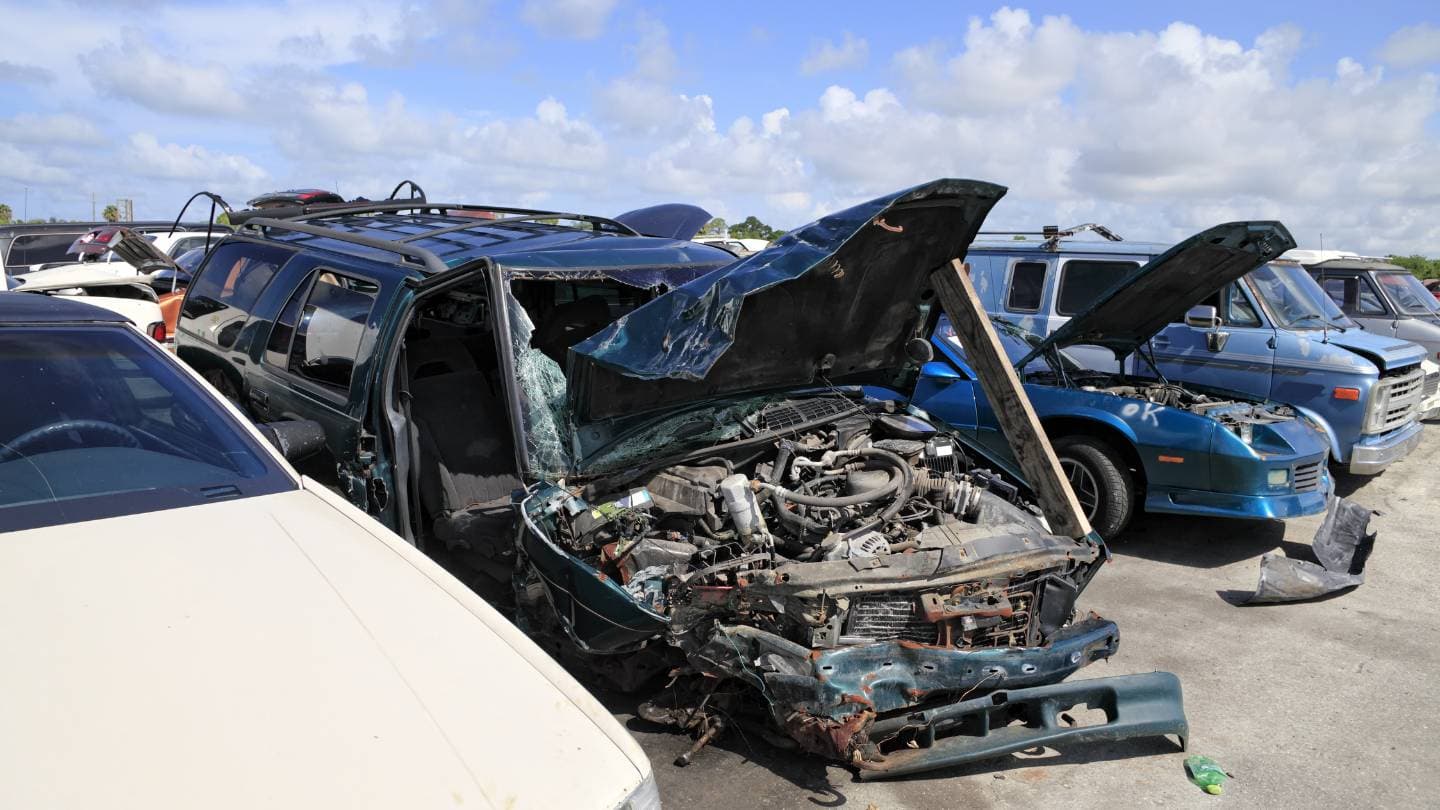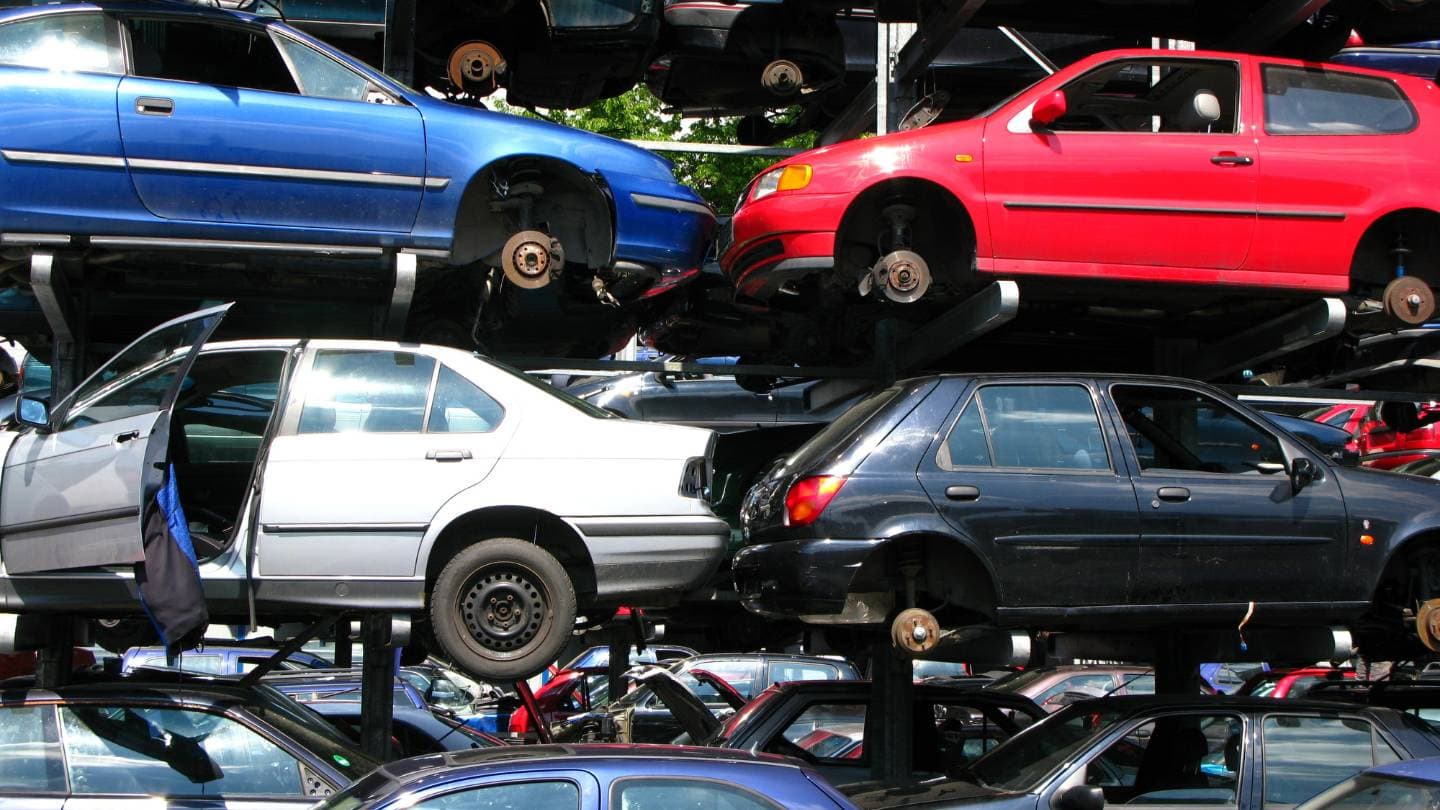With over 500,000 vehicles discarded annually outside Australia’s borders, it’s crucial to understand the environmental and economic significance of car recycling.
Recycling vehicles reduces landfill waste and allows us to reuse valuable materials like steel, reducing energy consumption and pollution. But why is car recycling so important, and how does it benefit our planet?
In this blog, we’ll explain the importance of recycling vehicles, the process involved, and its advantages to the environment and economy.
We’ll also look into the recycling of electric vehicles and their components.
Let’s Get Straight to the Point
Car recycling is essential for reducing landfill waste, conserving energy, and minimising environmental damage.
Recycling materials like steel, batteries, tyres, and oil prevents pollution and reduces the need for new raw materials. Electric vehicle batteries can also be repurposed for energy storage.
Choosing reputable scrap car removal services ensures your vehicle is recycled safely and responsibly, contributing to a sustainable future.
Why Should We Recycle Cars?
1. Reducing Landfill Waste and Pollution
One of the biggest advantages of car recycling is reducing landfill waste. Without recycling, millions of cars would end up in landfills, taking up space and contributing to environmental degradation.
Key environmental benefits include:
- Lower energy consumption: Recycling steel from cars uses less energy than producing new steel from mined ore.
- Decreased pollution: Recycling reduces air pollution, water contamination, and mining waste.
2. Safely Disposing of Hazardous Materials
Cars contain several hazardous substances that, if not properly disposed of, can cause serious environmental harm.
Oil, brake fluid, coolant, and air conditioning gases must be handled carefully.
Proper recycling ensures these substances don’t leak into soil or water sources, where they could cause significant damage.
How Are Cars Recycled?
1. Vehicle Decontamination
The first step in recycling a car is decontamination. This involves removing harmful fluids and substances such as:
- Fuel
- Lubricants
- Hydraulic fluid
- Air conditioning gases
Decontaminating vehicles minimises risks to both human health and the environment.
2. Dismantling the Car
After decontamination, the vehicle is dismantled. Still, functional parts, such as engines, tyres, and batteries, are either resold or repurposed.
- Tyres are often reused in various industries. They are repurposed for road paving, playground surfaces, and even footwear.
- Steel components are pressed and melted down for recycling, reducing the need for new raw materials.
3. Shredding and Sorting Materials
Once dismantled, the car’s frame and remaining metal parts are crushed and fed into a shredder.
This machine separates different materials, ensuring steel, aluminium, and other metals are recycled and reused efficiently.
The Challenges of Recycling Electric Cars
1. What About Electric Car Batteries?
Recycling electric vehicles (EVs) presents unique challenges, especially regarding their batteries.
Unlike traditional car batteries, EV batteries contain materials such as lithium and cadmium, which are highly toxic if not handled correctly.
- Lead-acid batteries from traditional cars are easier to recycle, with up to 90% of the material used in new batteries.
- Electric car batteries may not be fit for vehicle reuse when their capacity drops below 70%, but they can still be used for large-scale energy storage.
Recycling these newer batteries is essential for preventing harmful metals from leaking into the environment.
Key Car Parts That Should Be Recycled
1. Batteries
Car batteries can leak harmful chemicals like lead and sulfuric acid if left to decompose in landfills. By recycling batteries:
- We prevent dangerous substances from contaminating soil and water.
- 90% of the lead in batteries can be reused, reducing the need for energy-intensive mining.
2. Tyres
Discarded tyres are a major environmental hazard. In addition to taking up space in landfills, they release harmful pollutants when burned.
Recycling tyres prevents these issues, and recycled rubber can be used for the following:
- Road surfaces
- Playground equipment
- Building materials
3. Car Body (Steel)
Recycling the steel from a car’s body is one of the most impactful aspects of car recycling.
Recycled steel requires significantly less energy to process than new steel, reducing energy consumption and water pollution. Recycled steel can be used in:
- New cars
- Construction
- Railways and aircraft
4. Motor Oil and Plastics
Motor oil is another key element that needs to be recycled. Just one litre of used oil can contaminate one million litres of water.
Proper recycling prevents this contamination, and used oil can often be cleaned and repurposed.
In addition to oil, plastic components from a car’s interior, such as the dashboard and seats, can be recycled into new products, helping to reduce the global demand for new plastics.
The Environmental and Economic Benefits of Car Recycling
Recycling cars plays a vital role in conserving natural resources and reducing the demand for new materials.
The energy savings from recycling metals and other components are substantial:
- Energy and water pollution associated with producing new steel is drastically reduced.
- Recycled materials like steel, aluminium, and plastic can be used in new products, lowering production costs.
By recycling old cars, we contribute to a sustainable economy and protect our environment for future generations.
Choosing the Right Scrap Car Removal Service
If you’re ready to dispose of an old vehicle, choosing a reliable scrap car removal service is important.
A trustworthy company will ensure that the car is recycled in an environmentally responsible manner.
1. How to Find a Reputable Service
- Check reviews and reputation: Ensure the company has good feedback and adheres to environmental regulations.
- Free quotes: Look for companies that offer free, no-obligation quotes and are transparent about pricing.
- Environmentally friendly practices: Choose a company prioritising safe disposal and recycling over simply scrapping the vehicle.
Conclusion
Car recycling is crucial for reducing landfill waste, conserving resources, and preventing environmental damage.
By recycling, we can repurpose valuable materials, reduce energy consumption, and minimise pollution. Whether it’s batteries, tyres, or steel, every part of a car can be reused, making the recycling process economically and environmentally valuable.
So, the next time you consider disposing of a vehicle, consider the impact that car recycling has on the planet and make sure you choose a reputable scrap removal service to handle the process.
Frequently Asked Questions about Car Recycling
1. Why is car recycling important for the environment?
Car recycling reduces landfill waste, prevents pollution, and conserves valuable resources like steel and aluminium. It also ensures hazardous materials like oil and batteries are safely disposed of.
2. How does recycling a car help conserve resources?
Recycling metals like steel and aluminium reduces the need for raw material extraction, saves energy and water, and lowers emissions from mining and manufacturing.
3. What happens to the parts of a car during the recycling process?
Key components like tyres, batteries, and the car body are removed, with usable parts being resold or repurposed. The remaining metal is shredded and sorted for recycling into new products.
4. How are electric vehicles (EVs) recycled, especially their batteries?
EV batteries are more challenging to recycle due to their toxic materials, like lithium. While they can’t always be reused in cars, they are often repurposed for energy storage, preventing harmful metals from entering the environment.
5. What are the economic benefits of car recycling?
Car recycling reduces the cost of manufacturing new products by reusing materials. It also saves energy, lowers production costs, and supports the economy by providing affordable replacement parts.



